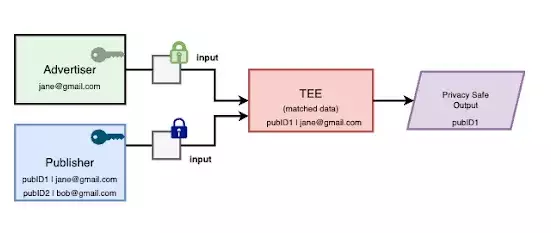In the evolving landscape of digital advertising, privacy concerns have become paramount. As businesses strive to adhere to increasingly stringent regulations while still effectively reaching their target audiences, Google is advocating a revolutionary approach known as “confidential matching.” This innovative system integrates Google’s analytical capabilities with businesses’ first-party data to enhance ad targeting without compromising the security of personal information.
Confidential matching utilizes Trusted Execution Environments (TEEs), a state-of-the-art technology designed to securely process data. By establishing a secure enclave for data processing, TEEs ensure that even individuals with administrative access cannot manipulate or directly access the contents involved in the matching process. This mechanism not only bolsters security against external breaches but also mitigates the risk of misuse by trusted insiders, thus safeguarding sensitive consumer data.
The introduction of confidential matching can be seen as a strategic response to ongoing challenges surrounding data privacy. Google has faced significant hurdles in its plan to phase out cookie tracking in Chrome, initially scheduled for 2022. This initiative has encountered resistance from both industry stakeholders and regulatory bodies, resulting in multiple delays. By pivoting toward solutions like confidential matching, Google aims to create a framework that better aligns with privacy regulations while still enabling effective advertising strategies.
With data privacy becoming a focal point for consumers and regulators alike, advertisers are increasingly pressured to demonstrate compliance and integrity in their data practices. Google’s confidential matching is positioned as a business-friendly solution that allows for secure data sharing without compromising consumer trust, marking a progressive step towards reconciling the demands of privacy with the need for effective ad targeting.
As businesses and marketers adapt to new privacy norms, the need for versatile and compliant data strategies has never been greater. Confidential matching represents a shift in how companies can leverage consumer data. Advertisers can now implement their encryption protocols before any data leaves their infrastructure, enhancing security and ensuring that their data handling practices meet stringent privacy standards.
This method not only promotes transparency but also provides advertisers with the ability to engage more deeply with their audience through tailored campaigns. As Google champions this innovative approach, it is paving the way for a future where targeted advertising and stringent data privacy can coexist harmoniously.
Google’s confidential matching initiative exemplifies a crucial step forward in addressing the complex interplay of data privacy and effective advertising. As consumer awareness of data usage grows, the demand for privacy-centric solutions will likely drive further innovations in this space. While the technical intricacies may seem daunting to many marketers, the underlying benefits of enhanced audience targeting, coupled with robust privacy safeguards, signify a meaningful progression in the advertising industry. Companies that embrace these evolving strategies will not only comply with regulations but also foster greater trust with their audiences, ensuring a sustainable and ethical approach to advertising in the digital age.


Leave a Reply